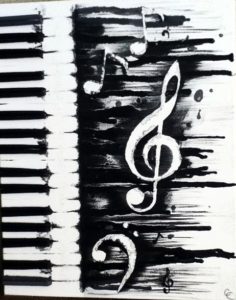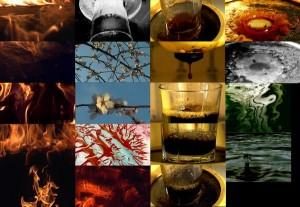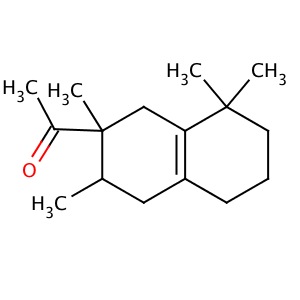
While I love poetry and storytelling and tend to wax somewhat "eloquent" when writing about fragrance, I still find the simple, dry lists of top, heart and base notes to be very helpful. No matter how specific and technical (or vague and incomplete) these lists might be they are often a necessary jumping off point for understanding a perfume and for subsequent imaginative writing about the fragrance. Although I do make a point of smelling perfumes before referring to listed notes (in order to test my nose and to keep first impressions clean) I hate to admit that I find myself relying on unclear lists of notes to bring clarity to a review. I find these lists useful. I recently reviewed a fragrance I liked very much and was a little taken aback before smellling it when the press release admonished fragrance lovers they should not buy the perfume if they needed to know notes. In addition, more and more perfumers and Perfume Houses are shying away from revealing notes, and instead, are tending to describe their creations with "flowery" poetry and prose. The listed notes, if there are any, often remain mysterious.

The choice of technical vs. "flowery" descriptions has been an issue with me for years in regard to music. As far as teaching is concerned, the decision to go with the technical or the lyrical or a combination of the two boils down to "skillful means" – whatever works best for the individual. But which is better in a perfume review – the technical or the descriptive or a combination of both?

Photo Copyright: Pierre Benard Osmoart ©
For some people a list of notes might be considered nothing more than a boring, seldom accurate, parsing of a fragrance. For others, excessive flowery descriptions are nothing more than examples of a writer's predilection for collecting and creating adjectives (just add a "y" to the end of a noun). As I am not a perfumer, I will often smell things in a fragrance that are obvious to me but not chemically present in the perfume. I have to admit that I have been guilty of covering my gaps in olfactory knowledge with " adjective-itus"! I have struggled with the excessive use of words like: "Airy, balmy, creamy, dusty, earthy, fizzy, grassy…"and on through the alphabet! While these sorts of words can tell us something about fragrance, the "y" at the end dilutes specificity and suggests something similar to – but not exactly like – the word it modifies. Understanding raw materials can be daunting unless you are an expert which is why Editor Elise Pearlstine, who is also a perfumer writes in-depth articles about how popular fragrance ingredients are used in perfumery.

iso e supra molecule
Poetry and adjectives aside, I believe that part of the new reluctance to list and name fragrance notes on the part of perfumers and Houses has to do with the palette of wonderful and otherworldly aroma-chemicals that create the effects of strange fruits and flowers and accords that can only be described as un-natural and extra terrestrial. Rather than naming the exact aroma-chemicals as fragrance notes, it seems to be more consumer-friendly to describe the effect or the feelings related to the fragrance in fanciful poetry or prose.

miniature.com ©
On the other side of this topic, does "knowing" prejudice your choices? I have a friend that dislikes Vetiver perfumes. If she sees the word “vetiver” listed in a fragrance, she automatically passes judgement and …passes. However, when I sent her a sample of a perfume which was vetiver-centric, she asked, “What is that scent? I must buy it!”

Manchon Reef Sculpture and Photo by Jason Decaires Taylor ©:Does this photo give you a clue to what the notes in the perfume might be?
So what do you think? Do you find the listed notes critical to your understanding of a fragrance. Would you rather the art of perfumery be reflected in eloquent writing and beautiful illustrations or do you prefer it broken down into chemical components. Is it important to understand and describe perfume by means of words, art, music and chemistry or is the olfactory sensation of the fragrance more than enough? Do words limit or expand fragrance experience? How does a fragance reviewer, marketer, retailer or perfumer writer make the intangible understandable.
Let's talk about it!
Gail Gross, Editor with contributions from Michelyn Camen, Editor -in-Chief
